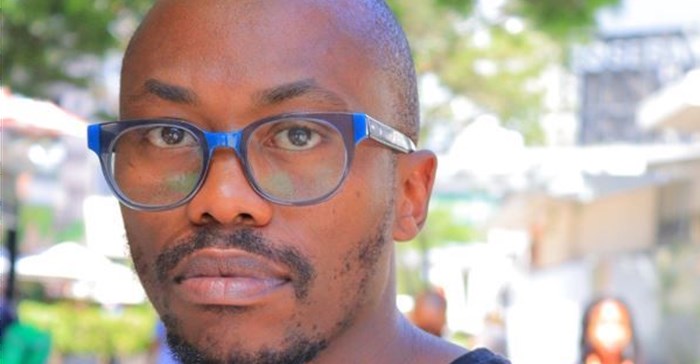Melusi Dhlamini, a medical practitioner, serves as the clinical network lead at Healthforce and Kena Health. With a career as a health activist, Melusi operates at the forefront of advancing women's sexual and reproductive health rights (SRHR) while ensuring excellence in obstetrics and gynaecology practices.

Source: Supplied. Melusi Dhlamini, clinical network lead at Healthforce and Kena Health.
In 2020, he was named as one of the Top 200 Young People by Mail and Guardian in the Health category for his role as medical doctor and abortion provider. He has worked in this role at both Shimankana Tabane Hospital and as director of Marie Stopes - an organisation that provides termination of pregnancies according the South African legislation.
"My activism is underpinned by a desire for gender equality and a world in which your gender and its various expressions; race; and social and economic standing do not negatively affect you," he said at the time of being nominated for the award.
"Access to safe and legal abortions saves lives. Restricting access to these services is a violent infringement on woman's right to life."
At 35 years of age, Dhlamini says this previous SRHR work has not only informed his current role at Kena but has taught him to be intentional about designing inclusive healthcare systems that leave nobody behind.
"I have carried that attitude with me in my everyday work, always looking for ways to eradicate barriers to accessible, affordable and quality healthcare."
Here we get to know him a little better...
Please could you tell me a little bit about what your role as clinical network lead at Healthforce and Kena Health entails?
At Healthforce and Kena Health, we seek to change healthcare systems. We do this by creating solutions, where teams of clinicians work with technology to deliver patient-centred healthcare while lowering the cost of care.
As clinical network lead, I oversee the delivery of high-quality patient care and implement best practices and guidelines to ensure that clinical standards are maintained through planning and managing of daily operations. It’s an exciting opportunity to be at the forefront of telehealth and healthtech in Africa.
We are a patient-centered organisation, so maintaining the highest quality of care is our priority. To date, Kena Health is recognised for its high-quality patient care with patients rating Kena Health a 4.8/5 rating on the app store and Healthforce clinics have some of the highest customer-satisfaction ratings in the industry.
I hear that you have a passion for advancing access to sexual and reproductive health and rights (SRHR) for women. Could you tell me a little bit about how this has informed your role at Kena Health and Healthforce?
I had already been working in OBGYN when I found my passion for SRHR. I encountered a life-changing moment involving a woman who had died from an abortion that nobody knew about. She had bled out and there was not much we could do to save her life.
During the period that she was my patient, I kept on thinking about how she could have lived had she had a safe abortion and what was it that prevented that from happening. When I looked into it, I realised that there were a lot of factors at play. I chose to contribute to efforts to improve access to safe abortion and lend my voice and social-media platform to raise awareness and educate on the topic.
During my time in the OBGYN department, I learned how to bring together individuals who were passionate about SRHR to do the groundwork. That work inspired a formalised care programme in the region where I was working.
At Kena Health and Healthforce, women make up the majority of our patients. These platforms provide safe and affordable access to advice, contraception, and treatment for a range of sexually transmitted diseases. These health-tech platforms help me to make a more scalable impact in the lives of women and their SRHR needs.
Based on the kind of calls coming in, and the data being collated at Kena Health on sexual health and reproductive medical services for women, what is the data reflecting about the profile of women using the app? Where are these women based? What is the data showing with regard to what medical services they need?
Given that it is an app-based service, we see women from all over the country. Women make up 70% of our users, and the vast majority can be classified as youth who are 18 to 35 years old. The top conditions we encounter are the need for contraception, and the need to medically treat sexually transmitted infections, urinary tract infections, and vaginal thrush. We also deal with a huge amount of mental-health counselling on the app, given the high mental load women in South Africa face.
The data indicates the need for more robust sexual-health education so our nurses spend a great deal of time helping women gain a better understanding of their sexual health and safety.
In the early stages of the launch, we noticed the demand for simple contraception renewal and vaginal-thrush treatment. These are relatively simple conditions to treat so we introduced express consultations for these, making it even faster and even more cost-efficient to consult on Kena Health for only R120 as compared to the normal consult price of R185.
I see Old Mutual’s subsidiary Next176 is investing $2m (over R36m) in Kena Health, to address the healthcare needs of under-serviced and underserved communities in South Africa. What does this mean for the delivery of SRHR services to women living in remote areas in SA?
Right now Kena Health plays an important role as an entry point into the larger healthcare system. The vision is to see Kena Health offering a broader set of clinical services, and integrating into a network of healthcare providers to expand coverage of quality healthcare while lowering the overall cost of care to millions of people.
In 2020, you were named as one of the Top 200 Young People by Mail and Guardian in the Health category. What events or factors preceded the acquisition of this award, and how have they influenced your current professional endeavours?
At the time that I won the award, I had successfully led the design and implementation of SA’s only telemedicine service for abortions which was hailed as a move in the right direction by industry peers locally and abroad. I was also quite vocal about issues relating to SRHR and leveraged various media platforms to disseminate my message.
Since then I continue to prioritise inclusive healthcare and to advocate for accessible quality services, which reflect my commitment to breaking down barriers.




































